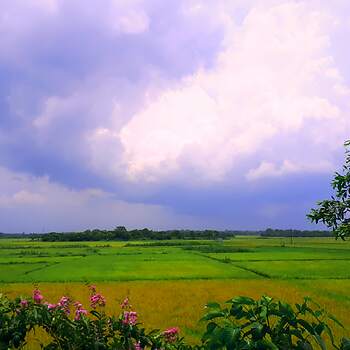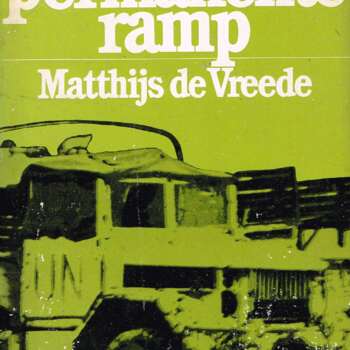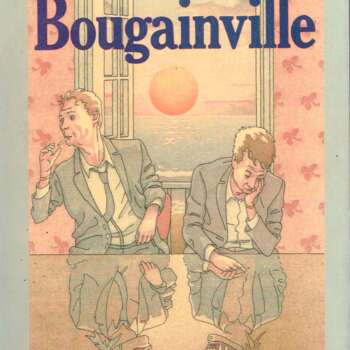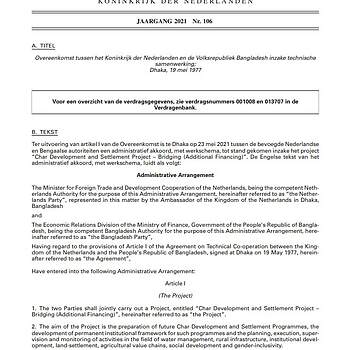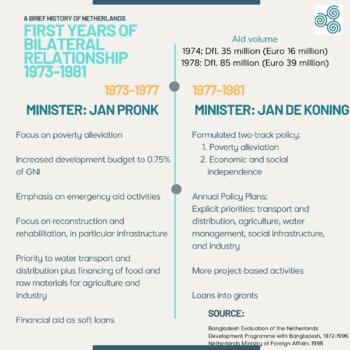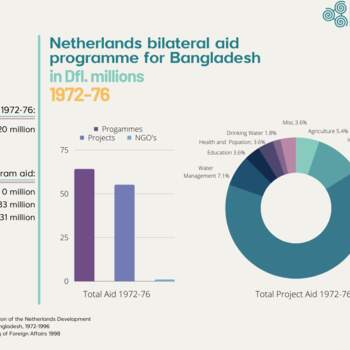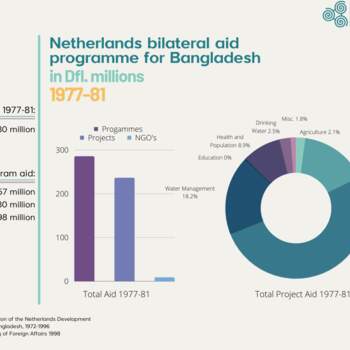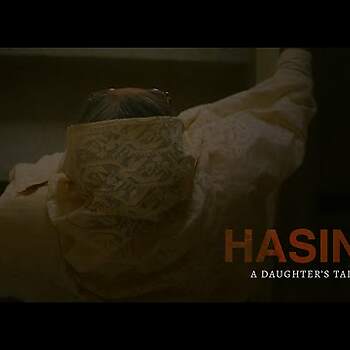Political context
Sheikh Mujibur Rahman (1920-1975), the leader of the Awami League, is regarded as the founding father of Bangladesh. He announced the independence of Bangladesh during a landmark speech on 7 March 1971. After independence on 16 December of that year, Mujibur served as the first President for only nine months, then became Prime Minister and subsequently President again in January 1975 until his assassination on 15 August 1975.
The coup was planned by disgruntled Awami League colleagues and military officers. Junior army officers invaded the presidential residence and killed Mujib, his family and personal staff. Only his daughters Sheikh Hasina Wajed and Sheikh Rehana, who were visiting Germany, escaped.
Mujib’s death plunged the nation into many years of political turmoil. Order was largely restored after a coup in 1977 gave control to the army chief, Ziaur Rahman, who declared himself president in 1978. While continuing the ban on political parties, he sought to revitalize the demoralized bureaucracy, started new economic development programs and emphasized family planning. Zia promised national elections, announced a 19-point program of economic reforms and began dismantling the Martial Law Administration. Zia won a five-year term in presidential elections in June 1978. In November, his government removed the remaining restrictions on political party activities in time for parliamentary elections in February 1979. The Awami League and the Bangladesh Nationalist Party, founded by Zia, emerged as the two major parties.
Start of development cooperation
The Dutch cooperation program with Bangladesh was launched in 1972, shortly after independence. The main motivation for the inclusion of Bangladesh on the list of so-called 'concentration countries' was the desperate poverty in the country, the extensive damage caused by the struggle for independence and the anticipated long-term need for aid. Moreover, Bangladesh was previously part of Pakistan, which was itself a ‘concentration country’. In 1971, Henry Kissinger described Bangladesh as 'an international basket case'.
Mathijs de Vreede describes the situation as follows in his book De Permanente Ramp (Spectrum, 1975). The title refers to Bangladesh as a 'permanent disaster'.
"The main cause is the socio-economic situation in which the country finds itself. The most reliable estimates for the 1974 calendar year indicate that in the city of Dacca alone, one hundred people died in the streets every day. Country wide, hundreds of thousands must have died, including a large group of the former middle classes. They had been sucked into the downward economic spiral, were ashamed to queue at the soup kitchens and slowly but surely died in their own homes."
Fifty years later, Bangladesh is by no means a hopeless case. On the contrary, by 2015 Bangladesh had joined the group of lower middle-income countries and aspired to gain upper middle-income status within a few years.
Two-track policy
In the start-up period of the bilateral relationship, Jan Pronk was the Minister for Development Cooperation (1973-1977). He focused on poverty alleviation and managed to increase the development budget to 0.75% of GNP. In 1977, Jan de Koning took office as minister (1977-1981); he formulated the two-track policy: poverty alleviation on the one hand, and economic and social independence on the other. This was also translated to the Bangladesh program, but there was no specific Dutch policy document on assistance to Bangladesh. From1979, the priorities in the aid relationship were set out more explicitly in mutually agreed Annual Policy Plans: transport and distribution, agriculture, water management, social infrastructure, and industry.
During the first years of bilateral cooperation, the emphasis was mainly on emergency aid activities, which were largely carried out by the UN organizations. Until roughly 1978, the regular bilateral program focused on reconstruction and rehabilitation, in particular of the infrastructure that had suffered badly as a result of the war. Priority was given to water, transport and distribution, including equipment and construction of food storage facilities. The financing of food and raw materials for agriculture and industry also played an important role.
More structure
Gradually, the administrative apparatus acquired more structure, the situation and needs became clearer and the Netherlands gained more insight into Bangladesh's priorities. After 1976, the emphasis slowly shifted towards project-based activities accompanied by an important program aid component. Note: within development cooperation a distinction is made between project aid for a specific activity and program aid for a particular program. Unlike project aid, program aid consists of multiple components, including projects, and therefore focuses on achieving broader and more long-term goals.
The volume of aid increased steadily; more than doubling from Dfl. 35 million (16 million euro) in 1974 to Dfl. 85 million (39 million euro) in 1978.
In the early years of assistance (1972-1976) the financial aid was offered as soft loans, but in 1978 the Netherlands converted these loans into grants and since then has only awarded grants. In this period the Netherlands was the sixth-largest bilateral donor, accounting for nearly 4% of the total flow of aid, including multilateral funds.
Program aid constituted about 54% of overall Dutch assistance, project aid 45% and support for NGOs 1%. These figures remained more or less constant over the years. In terms of program aid, agriculture was by far the largest sector (47%). Most project aid went to transport (54%), followed by water management (16%), industry (15%) and health and population (8%).
What was actually done
- Agriculture: potato research and seed potatoes; supply of fertilizer
- Transport: especially geared towards water transport: Chittagong port study, pilots on the Pussur river connecting the port of Khulna with the Bay of Bengal, a survey vessel, provision of dredging equipment and spare parts, technical assistance by a dredging team, inspection and survey vessels for inland water transport, support for Bangladesh Biman, the national airline
- Industry: technical assistance for small-scale industries, supply of raw materials, rehabilitation of the sugar industry and support for domestic fertilizer production
- Water management: identification of projects in the water sector: early implementation project, one project each in the western and eastern parts of the delta
- Health and population: construction of training centres for medical assistants
A cautionary tale
The fact that a development relationship always advances in fits and starts is aptly described by the Netherlands' first chargé d' affaires in Bangladesh, Carel Jan Schneider, in his book 'Bougainville', which he wrote under the pseudonym F. Springer. He tells of plans by the Netherlands to supply a dredger.
"Of course I knew that such a gift from the Netherlands to Bangladesh, in the context of development aid, was on the way, but so much was on the way and how did you receive such a vessel? The customs man called me and repeated the address just to be sure: Charge d' Affaires of the Netherlands, room 702, Hotel Intercontinental, Dacca, and tomorrow that colossus will arrive in Chittagong, on the deck of a German freighter. If I didn't unload it right away, it would mean a thousand dollars an hour in extra mooring fees. And what was I supposed to do with that two-hundred-ton dredger in that hotel room? He just asked that out of curiosity."
Sources and Read More:
de Vreede, Mathijs (1975). De Permanente Ramp, Spectrum.
Springer, F. (1981). Bougainville, Querido.
Rahman, S. M. (2022, September 29). The Unfinished Memoirs. The University Press Limited, Bangladesh.
IOB (1998). Evaluation of the Netherlands Development Programme with Bangladesh, 1972-1996.
Embassy of Bangladesh to the Netherlands
For more information on the Ministers for Development Cooperation and development cooperation in general, check the timeline 70+ years development cooperation.
